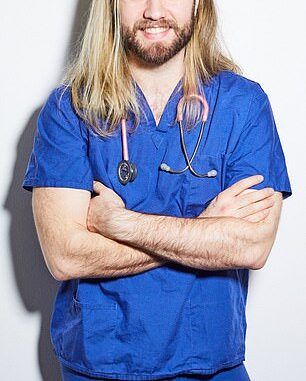
As a newly qualified NHS hospital doctor, Joshua Wolrich — weighing 17st — became obsessed with the idea that a good doctor shouldn’t be overweight.
Over 18 months he embarked on a rigorous diet and exercise plan, dropping 4st and charting his metamorphosis on social media.
But in 2019, disillusioned by the growing popularity of fad diets and the abundance of conflicting information across social media, he switched from hospital medicine to study for a Masters degree in nutrition.
With nearly 400,000 Instagram followers, he’s written a book, Food Isn’t Medicine, debunking food myths and setting out his diet philosophy.
His view is that although food ‘can have a positive impact’ on someone’s health, and ‘can be used alongside medicine, and be very important for patients who cannot tolerate medication due to side-effects’, it is ‘not medicine’.
As some doctors increasingly insist on the importance of what we eat, this perhaps strikes a controversial note.
But Dr Wolrich is concerned with the way certain ‘diets’ are promoted as an alternative to medical treatment, especially with cancer patients, for instance, blaming dairy.
‘Focusing on an individual nutrient, rather than the food it comes from, pulls us into the trap of “reductionist nutrition”, which is an assumption that once we know the nutrients in a food, that food must do all the things the nutrients do,’ says Dr Wolrich.
This, he says, is what leads to claims such as ‘fish cures autoimmune disease as it contains anti-inflammatory nutrients’.
‘Our diet doesn’t work this way,’ he says. ‘Nutrients interact with each other in the context of the wider diet and lifestyle in ways lab research can’t account for.’
Here, in an extract from his book, Dr Wolrich examines common beliefs about food and its role in disease.
END

Be the first to comment